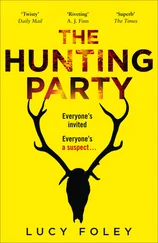“And Raffa told me about what happened after they crashed—although she doesn’t know all of Ronnie’s story, or George’s, or the others’. Were they all your crew?”
“Apparently not. This wasn’t the first such hunt, and Petris said some who survived a few weeks of a hunt were kept to seed the next, to keep it ‘interesting.’” Her voice flattened on the word. “Too many were, though. I never thought—I swear I never imagined any such thing—”
“Of course not.” Cecelia leaned against the rock, and smiled at the younger woman. So much older than the younglings, Ronnie and his friends, but still so vulnerable. . . . She clearly needed someone to reassure her. Yet, in Cecelia’s experience, no reassurance made up for bad results . . . and this had to be a bad result, no matter how selfless the original decision. She looked away from Heris, and thought about what she could do. Did she know anyone in the admiralty?
By the time Heris and Cecelia landed on Bandon again, the young people—except for Buttons, who remained the family’s representative on Bandon—had been taken to the mainland along with two wounded militia and three wounded victims. Ronnie needed medical observation; the girls had wanted to check on George themselves, and Bubbles had an appointment with her father. Cecelia relaxed in the luxury of Bandon Lodge—a full set of servants had been flown out as soon as the island was secured—and left Heris to her own devices. Heris, after a bath and change of clothes, gathered her courage and went to see if her former crew would even speak to her. They were scattered through the guest rooms, according to the information in the deskcomp. She found door after door with its privacy locks engaged, and didn’t try to intrude. Finally she found one door ajar, and tapped lightly.
Petris looked out at her. “Ah. Captain Serrano.” The formality went to her heart. “I was just about to bathe.”
“I’m sorry. I’ll—” Wait, she would have said, but she had no right to force him to speak to her if he didn’t want to.
“I’m sorry I yelled at you, back there,” he said. “It was just hard to believe—”
“I’m sorry I thought you could have been with . . . with Lepescu.”
“Look—I’m still stinking filthy—I was checking on Oblo, and he’s fine. Let me get clean, and why don’t we go walk somewhere?”
At least he was willing to talk to her. Heris nodded, silently, and turned away. Back in her room she tried to relax, but her eyes kept moving to the window, with its striking view of the beach and the other island across the water. The sun slid lower; the colors of sea and sky changed minute by minute. Flitters came and went; they were, she supposed, picking up the bodies and taking them away, bringing more investigators to look for more clues. . . . Her head ached. She had fallen into a restless doze in her chair when the tap on her door woke her.
Bathed and dressed in clean clothes, Petris looked more like the man she remembered—and less. He was not in uniform, the only clothes she’d seen him wear except for the rags of the island. He was not in the mental uniform that had kept them both from acknowledging what they could feel if they allowed it. His eyes challenged her. “If you need a rest, we could hold this until morning.”
A night with issues unsettled would be no rest. “No. I’m ready.”
To her surprise, he smiled at her. “My favorite captain. Always ready.” He held up a basket. “I’ve had my first free meal, but thought we should bring something. There are enough cooks here to feed two cruisers. And the young lord, whats-his-name—”
“Buttons,” Heris said. “They call him Buttons.”
“The staff don’t. Anyway, he gave me a map, and suggested something called the ‘seabreeze trail.’”
She started to object—she had no idea where such a place might be—but didn’t. After what had happened, she had no right to quibble. “How is . . . everyone?”
Petris shrugged. “Most of ’em are asleep, I think. Oblo said to tell you thumbs-up on coming to the rescue, and I said I would. He said there’s a nurse in the clinic, there on the mainland, that almost makes the whole thing worthwhile. Remember the time we had to get him out of that rathole on Sekkis?”
Heris grinned, genuinely amused for the first time. “Oh, yes. Purple-dyed skin and all.”
Petris led the way down the carpeted hall, hung with soft-toned pictures of flowers and birds, and out to the parking area. “The young man said we could take a flitter or walk—which would you rather?”
It was nearly dark—though why that should matter, she couldn’t think. “Let’s walk,” she said. “If it’s not too far.”
“Nope. Just down this way.” In the gathering dusk, he led the way to a trail edged with white stones. It wound around one wing of the Lodge, skirted a clump of very tall trees, then dipped to the shore. Far off the sun hung in a glowing net of haze; the sea held the light and threw it back at them. The island across the strait showed a pale edge of beach, and a dark hump, but no details.
They walked on, along the beach, to an outcrop of gray rock very like the rock on the other island. It lay across the end of the beach, and beyond it Heris could see a rougher, stony shore where the sea nibbled and sucked hungrily. Here they stopped, as if the rock were a real barrier, although its blunt steps could have been climbed by a child.
Petris set down his basket. “While we still have light, we should see what the cooks came up with. Ah . . . real food.” He spread the serving containers out. Heris sat down abruptly. It couldn’t be this easy. Something had to happen, some further punishment for her mistake. It would be fair, she thought dismally, if he had put poison in the food, if he leapt on her and strangled her. She hadn’t meant bad to come of it, but it had—and when had intention ever been justification for causing the deaths of innocents?
He looked at her and shook his head. “Captain—Heris—” It was the first time he had used her first name except to yell at her. “You’re about as relaxed as a novice gunner before the first battle. What do you think, I’m going to scold you?”
“You’d have a right,” she said.
“Well . . . yes. In one way, I do. In another, I don’t.” He looked into her eyes. “I think you want your scolding, is that it?”
Tears burned her eyes. “I—don’t know. I want—what happened to be different. For it to have worked the way it was supposed to. You safe—”
Anger roughened his voice. “By the gods, Heris, do you think we’d have joined the Regs if we’d wanted to be safe ? And safe at the cost of the best commander we ever had? Keep us from being butchered by that fool and his stupid tactics, yes—but not ruin yourself, and us, into the bargain.”
“You’re right,” she said. No use denying it. “I was wrong.” The rest of the pain she had put off feeling stabbed her, the thought of her crew, from that scrawny new kid in Power Systems, who had burst into tears with the first mail from home, to the wizened old senior medical mate, finishing out her last tour before retirement. What had happened to them? Tears spilled over; she could feel the wind chilling them as they ran down her cheeks; she struggled to control her breathing.
Petris moved close, and put his arm around her, a firm but gentle hold.
“You should have trusted us,” he said, his breath stirring her hair. “Did you think we’d fail you?” She could hear in that the pain she had dealt them—worse for some than the pain of court-martial and public dishonor.
“I had failed you ,” Heris said. “The scan data were all lost—they told me you’d all be court-martialed along with me, risk discharge at least and probably time in prison.”
Читать дальше












